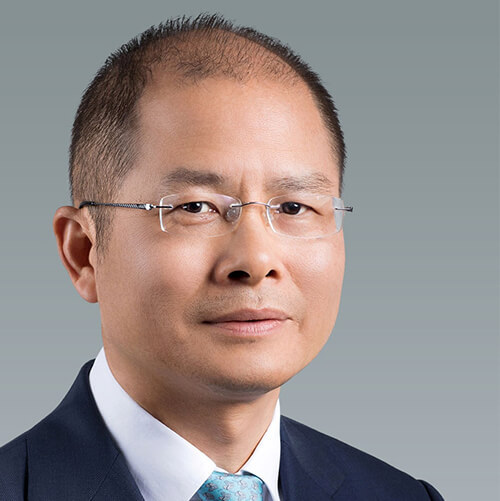Huawei CFO Meng Wanzhou arrived home to a rapturous welcome following a legal settlement with the US government.

Huawei CFO Meng Wanzhou arrived home to a rapturous welcome in Shenzhen on Saturday following a legal settlement with the US government, ending three years in detention.
Under the deal US prosecutors agreed to lift their extradition request from Canada while Meng acknowledged she had made false statements to HSBC executives.
That appears to put a line under the Meng case – so where does it leave us?
Here are four takeaways:
We may never get to the bottom of Huawei's dealings with Iran.
Meng was arrested and charged in 2018 as part of an investigation into the apparent provision of equipment and services to Iran in breach of US sanctions.
ZTE had been caught and fined $1 billion over its sales to Iran and for breaching terms of its legal settlement.
However, Huawei seems to have escaped punishment for the same offense.
The case against Meng centered around a presentation the CFO had made to HSBC in 2013 in which she falsely described Skycom, a company that sold IT gear to Iran, as "a third party that Huawei works with."
In fact, Skycom was a Huawei subsidiary, and Meng had previously been a board member.
In a statement, acting US Attorney Nicole Boeckmann said Meng's admissions confirmed the government's case "that Meng and her fellow Huawei employees engaged in a concerted effort to deceive global financial institutions, the US government, and the public about Huawei's activities in Iran."
For whatever reason, US prosecutors decided to pursue Meng personally over the alleged HSBC fraud rather than penalize the company as it did for ZTE.
With this settlement there seems little likelihood of any further action.
It doesn't end Huawei's legal jeopardy in the US
The deal to free Meng, which promises to lift all charges in December 2022, does not end the US government's legal pursuit of Huawei.
The biggest case is a racketeering suit filed in February 2020, alleging Huawei had stolen industrial secrets from six US companies: Cisco, Motorola, T-Mobile, Fujitsu, Quintel Technology and CNEX Labs.
Here’s the entire statement of facts that #MengWanzhou has agreed to, including admissions of untrue statements about Huawei’s business dealings in Iran, that caused HSBC to violate US sanctions: pic.twitter.com/bglwfkEq2O
— Ian Young (@ianjamesyoung70) September 24, 2021
As Huawei lawyers pointed out, some of these individual cases go back many years – the Cisco router suit was settled in 2004, while the alleged theft of T-Mobile testing kit goes back to 2012.
The racketeering suit alleges these are all part of a criminal conspiracy by Huawei that began in 1999.
One Beijing legal expert told Hong Kong-based scmp.com that it was likely that the US would use Meng's admissions in the racketeering case.
Huawei's opaque relationship with China government
One of the surprise revelations after Meng's arrest was her abundant collection of passports – seven in all.
One of these was a "public affairs" passport issued to mid- to senior-level government and state-owned enterprise officials and, apparently, to friendly business executives.
This may be perfectly proper – but it doesn't square with Huawei's insistence that it is a commercial company without any special government ties.
Unfairly or not, Meng's special status and China's high-profile support for her reinforce the US narrative that Huawei works closely and secretly with Beijing authorities.
Two sides are operating with different sets of facts
To the Chinese, Meng's release was a sign that hers was political persecution and her release was a result of a strong government forcing the US to back down.
Meng herself said the same thing on social media, couched in politically correct language: "Under the leadership of the Chinese Communist Party our motherland is progressing toward prosperity. Without a strong motherland, I would not have my freedom today."
Interested in Asia? Check out our dedicated content channel here on Light Reading.
To the rest of the world, Meng won her release by striking a deal in which she acknowledged her intent to defraud HSBC. The simultaneous release of two Canadians who had been held on spying charges merely confirmed they had been held hostage.
The national media made only passing reference to Meng's admissions and the Canadians. Huawei made no mention of either.
When it comes to the facts, east and west have already decoupled. That cannot be a good thing for this or any other industry.
Related posts:
— Robert Clark, contributing editor, special to Light Reading
Read more about:
AsiaAbout the Author(s)
You May Also Like











